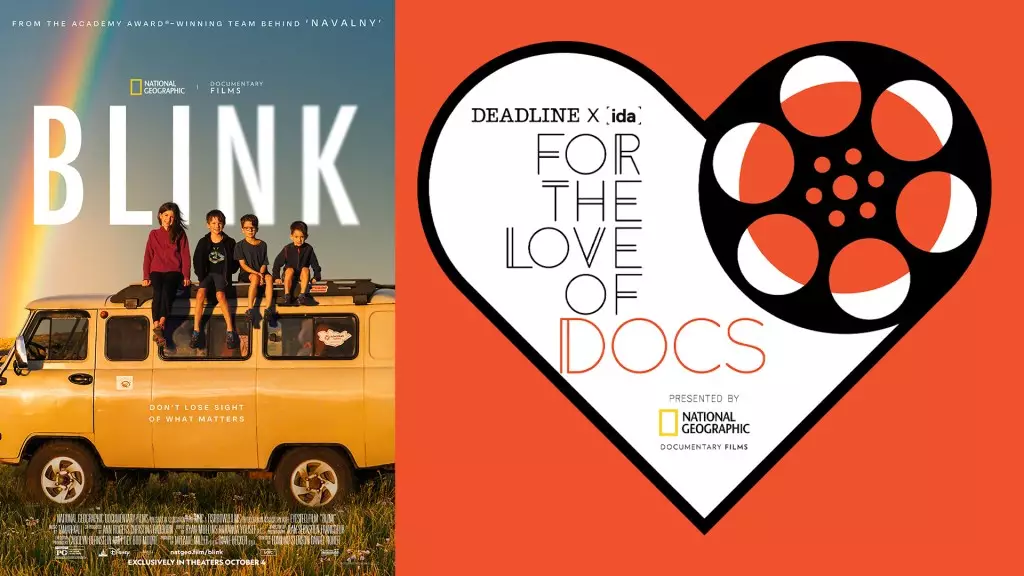Édith Lemay and Sébastien Pelletier, a family from Montreal, have transformed their lives into a mosaic of global experiences. With their four children—Mia, Léo, Colin, and Laurent—in tow, they have collected many passport stamps from diverse countries such as Namibia, Thailand, and Turkey. However, their travels are not merely for adventure; they stemmed from a profound motivation. Upon discovering that three of their children are at risk of losing their sight due to retinitis pigmentosa, the parents embarked on a mission to provide their offspring with a reservoir of rich visual memories that would be invaluable to them in the future.
This is not just a travelogue; it’s a poignant journey intended to create lasting memories, offering a wealth of visual richness that their children will be able to draw from when the world becomes dimmer for them. Their endeavor has been captured in the documentary “Blink,” directed by Edmund Stenson and produced by Academy Award winner Daniel Roher, offering a multifaceted view into the family’s unique experiences.
Stenson and Roher’s approach to creating “Blink” was notably different, emphasizing an emotionally authentic narrative that resonates deeply. In a Q&A session, Stenson articulated the need to resonate with the children’s perspective, giving viewers a glimpse into their universe while ensuring that the parental experiences served as emotional anchors throughout the documentary. The limited crew size helped to simplify logistical issues, making it easier to navigate the adventures of filming in challenging terrains like the Himalayas.
The family collectively decided their travel itinerary, allowing the children autonomy in planning the trip. Such empowerment is particularly striking in a world that frequently tends toward dictatorial parenting. Édith expressed this sentiment best: “We didn’t put any limits.” This open-minded approach took them to whimsical adventures like seeking Pokémon in Japan and enjoying juice on camels in the vastness of the Gobi Desert.
Roher’s admiration for Édith and Sébastien’s parenting ethos offers a critical viewpoint on modern styles of child-rearing. In an age characterized by the growing trend of “helicopter parenting,” which often inhibits children from cultivating independence and resilience, the Lemay-Pelletier family stands out for their confidence in their children’s abilities. Roher acknowledged that this dynamic allows kids to explore life with a sense of adventure and wonder, fostering critical thinking rather than stifling it.
His reflections illuminate a broader discussion on the importance of fostering independence in children, allowing them to embrace challenges without excessive parental oversight. By facilitating their children’s explorative instincts, Édith and Sébastien convey a powerful message about the need for openness in adventure, giving rise to a growing generation of self-reliant individuals capable of navigating the complexities of life.
The family’s adventures did not merely contribute to the children’s visual memory bank; they also turned the filmmaking process into an exercise in understanding childhood creativity. Stenson noted that the innate propensity of children to disrupt conventional narrative logic became a key asset in the documentary. Their innocent curiosity and spontaneity added layers of richness that may have otherwise been overlooked in a traditional storytelling format.
As the cameras captured these joyous, chaotic moments, they encapsulated a unique form of authenticity, allowing the film to delve deeper into the emotional nuances of the Lemay-Pelletier family. The glimpses into the imaginative worlds built by the children underscore the vibrancy and depth of their experiences, promising a telling reflection on how adventures can shape their outlook on life, even when faced with adversity.
“Blink,” premiering on December 16 on National Geographic and followed by its debut on Disney+ and Hulu, is a heartfelt tribute to the journey of the Lemay-Pelletier family, spotlighting the importance of memory-making in the face of challenges. Their expedition sets an extraordinary example of love transcending the barriers imposed by illness, standing as a beacon of hope and life’s beautiful moments.
Ultimately, Édith and Sébastien show us that the world is filled with vibrant experiences, and it is our perceptiveness and willingness to embrace them that creates the most vivid memories. In celebrating their children’s freedom to explore, this couple has not only crafted precious memories but also outlined a blueprint for parenting that encourages exploration, creativity, and resilience in the face of adversity.

Leave a Reply